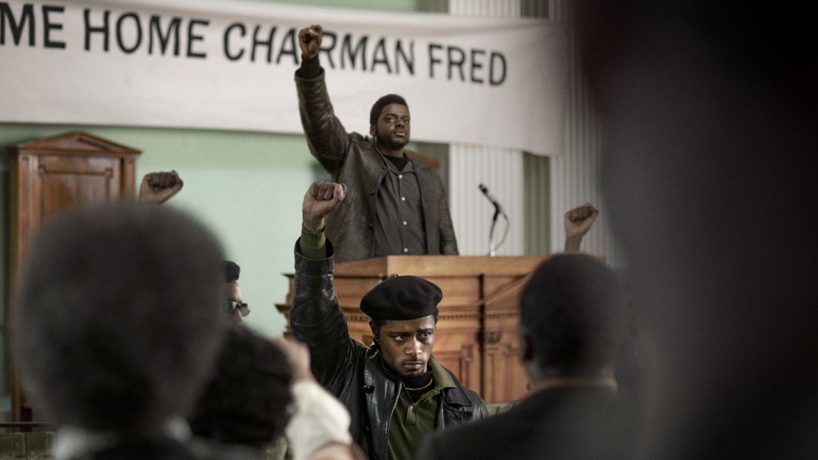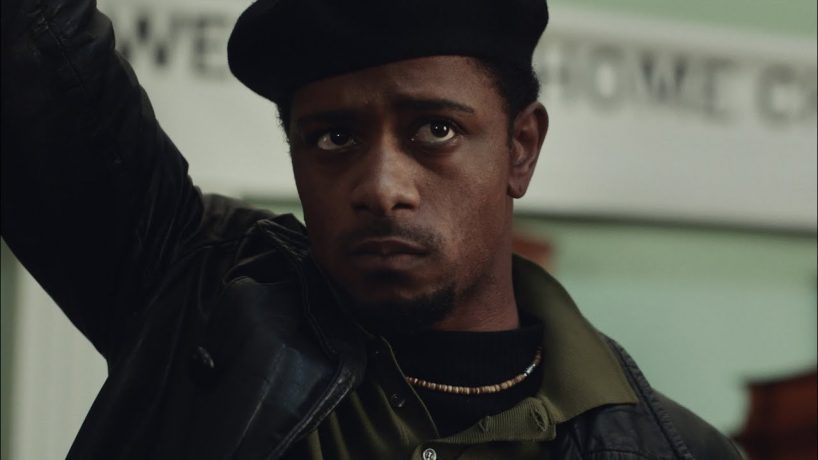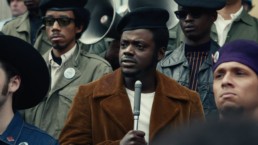‘Judas and the Black Messiah’ Review: Daniel Kaluuya Electrifies
Kaluuya's powerful performance shows a fearlessness of stepping into larger-than-life roles
If you, like me, were previously unaware of activist Fred Hampton’s story, writer and director Shaka King looks to educate audiences with his biopic Judas and the Black Messiah (now streaming on HBO Max). King brings Hampton’s story to the big screen by telling the real-life events of how an FBI informant infiltrated Hampton’s Black Panther Party, became the chairman’s confidante, and ultimately aided in his politically-motivated death.
To tell this story, Judas and the Black Messiah needs to start by telling the story of Bill O’Neal (LaKeith Stanfield), a young troublemaker who, after a run-in with the law, is hired by an FBI officer (Jesse Plemons) to infiltrate Fred Hampton’s (Daniel Kaluuya) inner circle within the Black Panther Party for the government’s tracking. Taken in by the promise of expunging his record (and eyeing the opportunity to attain a lavish lifestyle), Bill starts attending meetings in which Hampton–or “Chairman,” as his followers reverentially call him–inspired the masses through urgent, commanding visions and plans of growing Black Power messages in a post-MLK and Malcolm X world.

Daniel Kaluuya gives so much to embody the Chairman, bringing primal urgency in his wall-shaking speeches as well as quiet reflection in more intimate moments. It’s clear that while Judas and the Black Messiah is driven by the central story of a rat in the henhouse, Shaka King naturally veers from this plot to show even more of Chairman’s life, which includes a beautifully blossoming relationship with Deborah Johnson (Dominique Fishback). Their shared scenes, in which the two exchange ideas of inspired poetry and favorite speeches, are pure cinema magic (and Fishback is a revelation in the film). While Lakeith Stanfield does an admirable job of bringing the ethically-compromised Bill O’Neal to the big screen, the more the film goes on (with scenes that feel impactful, but standalone), the more it feels like his story of snitching feels less like the central reason we should be watching.
Sean Bobbitt’s (Widows) cinematography captures this 60s era period with a distinct and beautifully cinematic vision. Jesse Plemons’ presence adds further weight to the film, and Martin Sheen also appears (with noticeable makeup) as the power-hungry J. Edgar Hoover. And on a poignant final note, the film is framed by an interview with the real Bill O’Neal right before the credits roll.

The overall impact of Judas and the Black Messiah–which ends in a painfully powerful spree of gunshots–is overwhelming and deep, as I still think about the film regularly even after seeing it premiere at this year’s Sundance Film Festival weeks ago. Through telling Fred Hampton’s story, Shaka King channels the entire spectrum of the Black experience–from the beautiful poetry and unshakeable perseverance through the sadness and rage that protesting and oppression bring, which is very much felt in today’s America. Through Kaluuya’s bellowing speeches and Shaka King’s direction, Judas and the Black Messiah will echo for a long time to come.
126 min. ’Judas and the Black Messiah’ is rated R for violence and pervasive language. Now playing on HBO Max.
Ryan Rojas
Ryan is the editorial manager of Cinemacy, which he co-runs with his older sister, Morgan. Ryan is a member of the Hollywood Critics Association. Ryan's favorite films include 2001: A Space Odyssey, The Social Network, and The Master.

